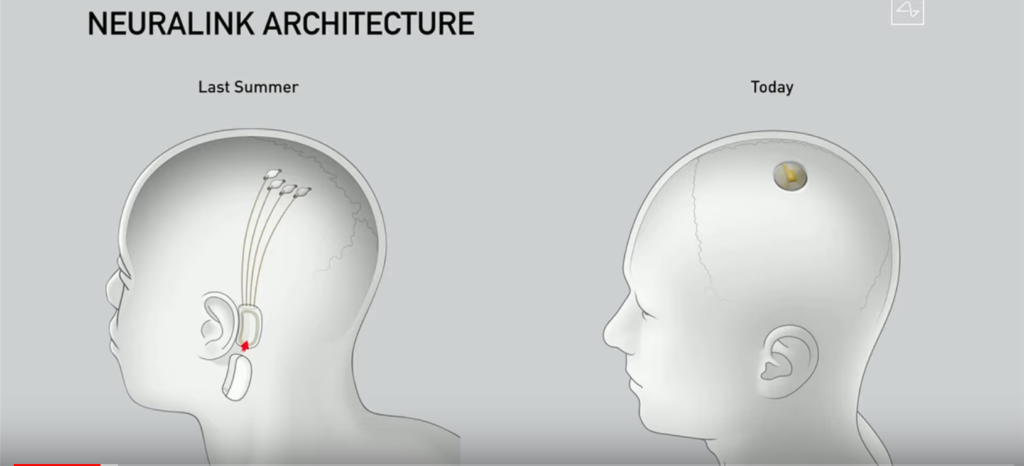Quote of the Day
“The world is not black and white. More like black and grey.”
- Graham Greene
Musical alternative to the morning’s radio news
Crosby, Stills, Nash & Young – Teach Your Children
I’ve always loved this song.
Michael Sandel on the dark sides of meritocracy
On Sunday, the Observer carried a remarkable interview by Julian Coman with the Harvard political philosopher Micheal Sandel based on The Tyranny of Merit: What’s Become of the Common Good?, his forthcoming critique of the doctrine of meritocracy that has been a cornerstone of both right and centre-left politics for several generations.
The Tyranny of Merit, says Coman,
is Sandel’s response to Brexit and the election of Donald Trump. For figures such as Barack Obama, Hillary Clinton, Tony Blair and Gordon Brown, it will make challenging reading. By championing an “age of merit” as the solution to the challenges of globalisation, inequality and deindustrialisation, the Democratic party and its European equivalents, Sandel argues, hung the western working-class and its values out to dry – with disastrous consequences for the common good.
Sandel says that ‘the rhetoric of rising’ touted by centre-left figures became
an article of faith, a seemingly uncontroversial trope. We will make a truly level playing field, it was said by the centre-left, so that everyone has an equal chance. And if we do, and so far as we do, then those who rise by dint of effort, talent, hard work will deserve their place, will have earned it.”
The whole idea of a meritocracy, in that sense, was pernicious, first of all because there never was a level playing field (as anyone who has sat on a Harvard or Oxbridge admission panel can testify), but also because only one kind of ‘merit’ was valued and valorised: academic success and the credentials that came with it. The message to every occupant of this non-level playing field, however, was: “better yourself or bear the responsibility for your own failure”.
In the end, is it any surprise that the ‘deplorables’ (to use Hilary Clinton’s vicious term) took their votes elsewhere. “The populist backlash of recent years”, says Sandel, “has been a revolt against the tyranny of merit, as it has been experienced by those who feel humiliated by meritocracy and by this entire political project.”
Great interview. I’ve ordered the book. It’s out on Thursday, I think.
How to fool an “AI” tutor: keyword mashing
Lovely story from The Verge*:
On Monday, Dana Simmons came downstairs to find her 12-year-old son, Lazare, in tears. He’d completed the first assignment for his seventh-grade history class on Edgenuity, an online platform for virtual learning. He’d received a 50 out of 100. That wasn’t on a practice test — it was his real grade.
“He was like, I’m gonna have to get a 100 on all the rest of this to make up for this,” said Simmons in a phone interview with The Verge. “He was totally dejected.”
At first, Simmons tried to console her son. “I was like well, you know, some teachers grade really harshly at the beginning,” said Simmons, who is a history professor herself. Then, Lazare clarified that he’d received his grade less than a second after submitting his answers. A teacher couldn’t have read his response in that time, Simmons knew — her son was being graded by an algorithm.
Simmons watched Lazare complete more assignments. She looked at the correct answers, which Edgenuity revealed at the end. She surmised that Edgenuity’s AI was scanning for specific keywords that it expected to see in students’ answers. And she decided to game it.
Now, for every short-answer question, Lazare writes two long sentences followed by a disjointed list of keywords — anything that seems relevant to the question. “The questions are things like… ‘What was the advantage of Constantinople’s location for the power of the Byzantine empire,’” Simmons says. “So you go through, okay, what are the possible keywords that are associated with this? Wealth, caravan, ship, India, China, Middle East, he just threw all of those words in.”
Before we know it, people will be using this trick to compose blogs. HT to Charles Arthur for spotting it.
The end of democracy as we’ve known it
Like many people, I’ve been brooding on what’s happening. Some thoughts, in no particular order;
-
It’s very disconcerting and disturbing to have to confront the possibility that the system which has shaped our collective lives for so long may be running out of steam. What has hitherto been unthinkable suddenly seems thinkable, or even possible.
-
As my colleague David Runciman pointed out in his terrific book, How Democracy Ends, democracy (or at any rate the versions of it that we have experienced) will eventually come to an end, if only for the reason that nothing lasts forever. (Just ask the Romans, or the Ottomans, or indeed the British.) In other writings, David has pointed out that American democracy is now middle-aged and he used the metaphor of the daft or dangerous things that middle-aged men do when they start to realise the fact of their own mortality — like buying a powerful motorbike. In that sense, Trump could be seen as American democracy’s motorbike.
-
But men buy motorbikes in the knowledge that if they do come off there will be an ambulance service and an A&E Unit in a local hospital to rescue them from their fate. And there’s an insurance company that will pay for the damage to the bike or to other people’s lives or property.
-
So the US electorate may have felt safe in taking a punt on Trump, on the grounds that if it turned out badly, well, then, the system would take care of them. In a way, that was also the thinking of my many liberal American friends who told me that, while Trump would be terrible, “we are a Republic of Laws” and the Constitution, the separation of powers and the court system would keep him under control and limit the damage, pending restoration of normalcy.
-
What American electors didn’t know (although they might have guessed) is that this particular metaphorical motorbike had the intention — and the capacity — to eliminate ambulances, A&E units and insurance services. Trump’s evisceration of the capacity of the federal government is a thing to behold — as Michael Lewis memorably chronicled in his book The Fifth Risk. Likewise his capture of the Senate (and, initially, the House), his stacking of the Supreme Court and his raft of lesser judicial appointments.
-
In his book, Runciman also made the point that democracy won’t fail backwards, but forwards. Looking back to Weimar Germany, for example, is a waste of time. The failure, when it comes, will take unexpected forms. One of the things we learned early from Trump (and, later, from Boris Johnson) is how norms and conventions play a key role in maintaining the democracy we have become used to.
-
For example: the idea that it’s unacceptable for a holder of high office to use the office as a way of enriching himself and his family and associates; the convention that if you lose an election you accept the verdict of the electorate rather than declaring it rigged; the norm that you don’t use the machinery of the Deep State as a way of settling personal or political scores; the convention that you do not ally with foreign adversaries in order to buttress your domestic position; and so on. (Analogous norms in the UK are ideas like: that you don’t prorogue Parliament simply to curtail debate; that ministers take responsibility for mistakes and incompetence or corrupt behaviour and resign; that you provide government spokespersons to responsible media organisations to enable them to provide ‘balanced’ coverage of public issues; that you do not give large contracts to favoured companies run by cronies; and so on.) What we are seeing, in these two supposedly mature democracies, is their versions of democracy being hollowed out by the flouting of hitherto respected conventions and norms. And there seem to be no legal ways of preventing this.
-
Adherents of the notion that democracy will fail backwards often identify the failure to hold free elections as the mechanism by which the collapse into authoritarianism (or worse) happens. The opposite seems to be becoming the case. Free, or relatively free, elections will continue to be the norm. But political polarisation, extremism, control of mainstream media and exploitation of social media will ensure that authoritarian candidates come out on top or — if they do not — that the legitimacy of the elections will be questioned. Orban in Hungary and Erdogan in Turkey are the paradigmatic examples of autocrats who have been freely elected by ‘the people’. And even if their majorities are relatively small, they rule as though they had received 99.9 per cent of the vote.
-
Consequently, a better litmus test for the existence of democracy in the future will not be whether free elections are routinely held, but whether peaceful transfers of power happen. Interestingly, this is one of the questions now beginning to trouble those American friends of mine who were so sanguine about the restraining power of democratic institutions in the pre-Trump era.
-
And none of this thinking involves exploring an equally important question, namely what’s so great about the kind of democracy under which we have apparently being living so contentedly. (See the earlier post about Michael Sandel’s new book.)
This blog is also available as a daily email. If you think this might suit you better, why not subscribe? One email a day, delivered to your inbox at 7am UK time. It’s free, and there’s a one-click unsubscribe if your decide that your inbox is full enough already!








